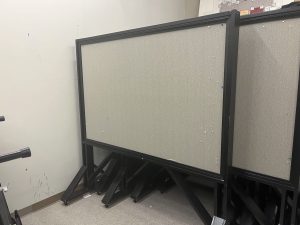CALL FOR PROPOSALS
The 2025 UNC Learning and Technology Symposium is excited to announce the call for proposals for our upcoming event themed “Connect, Collaborate, Create: Embracing the Future of Learning.” We invite faculty, librarians, staff, and graduate students across the System to share their innovative practices, research findings, and technological advancements that are shaping the future of learning. Proposals will be reviewed by two reviewers and accepted presentations will be published in the peer-reviewed open-access UNC System Learning and Technology Journal.
The Call for Proposals is closed. Authors should expect to be notified of the status of their submission by the first week of March.
Track Themes
- Universal Design for Learning (UDL) & Accessibility
- Student Success & Wellness
- Innovative Technologies and Learning Spaces
- Open Educational Resources, Open Pedagogy & Open Access Scholarship
- Course Design
- Learning Professionals as Researchers
- Educational and Faculty Development
Track Descriptions
Universal Design for Learning (UDL) & Accessibility
Centered on the principles of Universal Design for Learning (UDL), sessions can provide practical insights into designing flexible curricula, incorporating multiple means of engagement, representation, action, and expression. Universal Design for Learning (UDL) is a framework to improve and optimize teaching and learning for all people based on scientific insights into how humans learn. The goal of UDL is learner agency that is purposeful & reflective, resourceful & authentic, strategic & action-oriented.
- Designing Learning Environments: Strategies to create learning spaces that accommodate diverse learning needs.
- Implementing UDL in Course Design: Practical examples of applying Universal Design for Learning principles.
- Accessible Digital Content Creation: Best practices for ensuring all digital course materials are accessible.
- Assistive Technology in Education: Exploring tools and resources that support learners with disabilities.
- Adapting Assessments for Accessibility: Techniques for creating assessments that are accessible to all learners.
Student Success & Wellness
Share best practices, applications of theories, and your experiences implementing strategies to generate student success and wellness in the classroom and through intentional teaching strategies. Presentations might include discussions of programs or methods such as:
- Leveraging life skills and fluencies
- Engaging students or adult learners
- Adaptive and personalized learning
- Active learning and high-impact practices (HIPs)
- Supporting student wellness in the classroom
- Digital fluency and literacies
- Classroom methods or outcomes that encourage engagement and success
Innovative Technologies and Learning Spaces
The future of learning will occur in physical and virtual environments. How are you leveraging space and/or innovative technologies to engage students in learning and discovery? Your presentation might focus on:
- Designing, evaluating, supporting, and constructing learning environments (e.g., to include new and upfitted classrooms, as well as auxiliary spaces and library initiatives)
- Initiatives and programs to train and support faculty to use these spaces
- Educational technologies, tools and strategies to engage students in diverse learning spaces
Open Educational Resources, Open Pedagogy & Open Access Scholarship
The Scholarly Publishing and Academic Resources Coalition (SPARC) defines Open Education as encompassing “resources, tools and practices that are free of legal, financial and technical barriers and can be fully used, shared and adapted in the digital environment. Open Education maximizes the power of the Internet to make education more affordable, accessible and effective.” The Open movements (Open Educational Resources, Open Pedagogy, Open Access) are transforming teaching, learning, and research by increasing access, promoting equity, and engagement. Presentations might include topics like:
- Open educational practices, pedagogy, and research
- Programs or initiatives that support the creation and use of OER content or OP teaching practices
- Initiatives, processes, policies, or efforts to increase access
- Affordability and cost containment
- Open access: supporting and promoting open access scholarship and publishing
Course Design
Course design underpins all delivery modes of instruction and includes facets such as quality assurance and assessment. Its principles are often associated with quality criteria that inform the design and development of instruction. Possible topics for this theme:
- Course design for any modality: online, blended/hybrid, hyflex, technology-enhanced
- Case studies on the use of course design, including those developed to address unique needs or challenges
- Case studies on the use of quality criteria (Quality Matters, OLC Scorecard, or institution developed criteria)
- Evaluation/assessment results of implementing a new modality, program, etc.
- Scaling course design and implementation
- Leveraging AI in course design
Learning Professionals as Researchers
Instructional designers, instructional technologies, librarians, faculty, and other learning professionals are uniquely qualified to engage in research on teaching and learning. This session is meant to encourage participants to share strategies to guide their approach to developing and implementing scholarship of teaching and learning projects. Presentations might address:
- Your process and approach for pairing research with practice
- How you cultivate and maintain collaborative research partnerships with colleagues
- Your burgeoning, ongoing, and published research in the areas of faculty development, student success, open educational resources (OER), institutional policy and strategic planning, and more!
Educational and Faculty Development
Educational and faculty developers will share best practices, applications of theories, and your experiences implementing strategies to support instructors in all aspects of their career. Presentations might include discussions of programs or methods such as:
- Developing digital literacy among educators
- Effective professional development models
- Supporting faculty in technology integration
- Mentoring and coaching for instructional excellence
Presentation Types
- Presentation: These 45-minute sessions are opportunities to share topics of interest, lessons learned, foresight, or evidence of impact related to a conference theme.
- Poster Session: These 45-minute sessions allow presenters to visually present their topic with a physical poster display.
- Posters will be displayed on a 4×6 kiosk in landscape orientation (see image below). Presenters should bring push pins to affix their poster/s to the kiosk.

